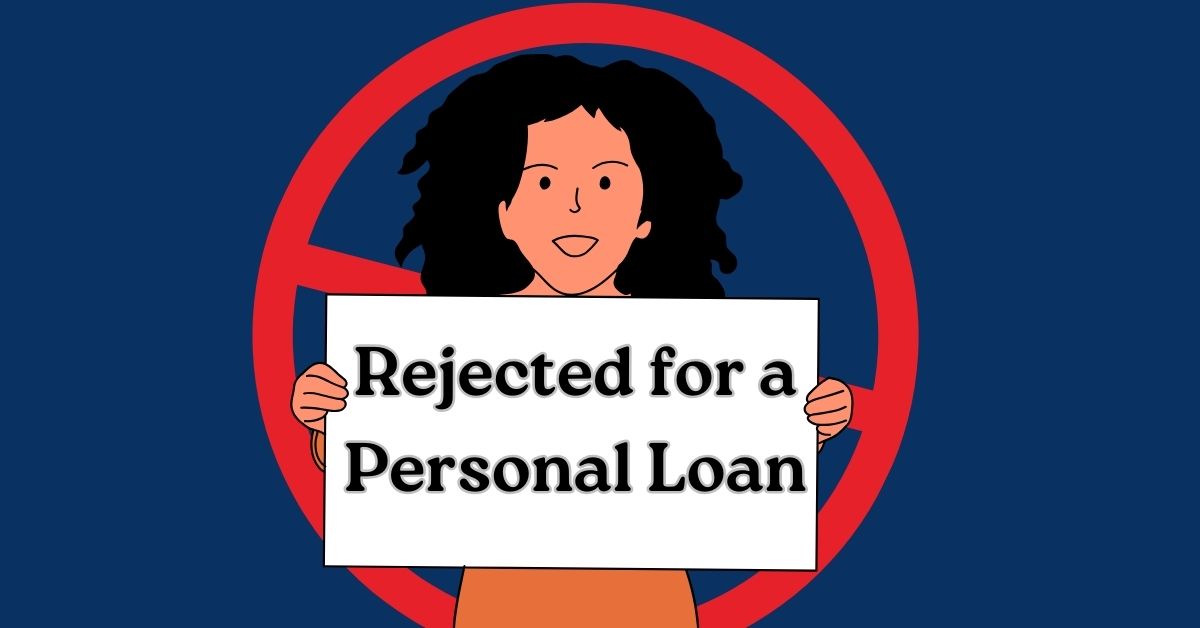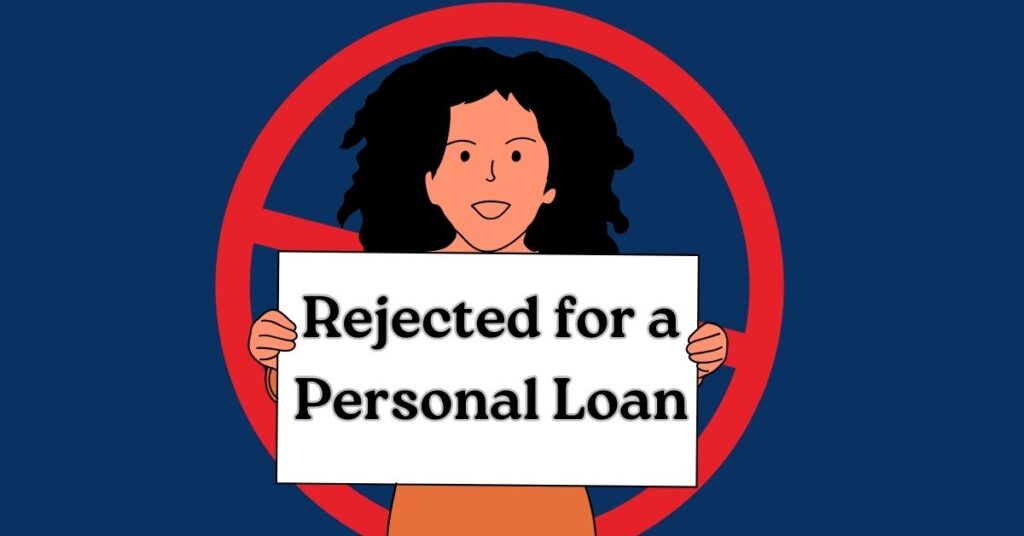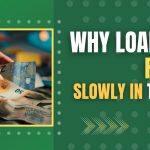

Rejected for a Personal Loan Here's What You Can Do Next
In today’s India, personal loans have become one of the most popular forms of borrowing money. They are popular for many different types of purchases, from weddings and education to emergencies to consolidating debt. n addition, The main reason they are so popular is the flexibility of the money. Unlike car or home loans, personal loans generally don’t have restrictions on how to use the money properly.
However, there are some downsides to personal loans as well, and popularity, unfortunately, does not guarantee you’ll be approved. Many people face refusals daily from banks, non-banking finance companies and web-based lender services. If you are one of the many who held your breath hoping for approval from a loan application, only to be denied an hour later, you may feel disappointed, embarrassed or simply stereotyped as a lost attacker on financial issues moving forward.
The reality is, being turned down doesn’t mean it’s over forever. It simply means that the financial assessment you present isn’t aligned with what the lender is seeking at that point in time. With a bit of strategy and some new approaches, your financial situation could be turned around, making you a better prospect for loan approval and possibly even a better alternative.
This guide will show you how:
- Why personal loan applications get rejected in India.
- What to do immediately after rejection.
- Actionable steps to enhance your candidacy.
- Alternatives to personal loans in case of a financial emergency.
- Long-term money habits to prevent rejections for good.
- Real-life scenarios and case studies of Indian borrowers.
- A detailed FAQ section to address common questions.
Let’s begin.
Why Do Personal Loan Applications Get Rejected in India
When a lender turns you down, it does not necessarily imply that you are irresponsible with money. It simply implies you do not fit their risk profile today. Lenders in India apply several filters before giving out loans.
For example, Low Credit Score (CIBIL or Other Bureaus)
Your credit score is your financial report card. In India, the majority of banks use the CIBIL score (300-900).
- 750+ → High probability of approval from leading banks.
- 700–749 → Good chance of approval from NBFCs with marginally higher rates.
- 650–699 → Risky, few options.
- Below 650 → Extremely difficult unless you take the secured or alternative route.
Example:
For instance, Neha, a 32-year-old IT worker in Bengaluru, requested a ₹5 lakh personal loan. Though she earns ₹70,000 every month, she was denied the loan since her CIBIL score was 612. A default on a credit card from 4 years back still haunted her history.
Erratic or Inadequate Income
Lenders require the guarantee that you won’t repay EMIs under pressure.
- For cities like metros, banks typically demand a minimum of ₹25,000–₹30,000 monthly income.
- For Tier-2 cities, this may be around ₹15,000–₹20,000.
- If you’ve recently switched jobs (less than 6 months), approval chances drop.
Example:
Similarly, Rohit from Lucknow earns ₹22,000 per month. He applied for a ₹2 lakh loan from a private bank but was rejected because his EMI-to-income ratio would have been too high.
High Debt-to-Income Ratio (DTI)
This ratio compares your total monthly EMIs to your take-home salary.
- Ideal: Below 40%.
- Risky: Above 50%.
If most of your paycheck is already committed to EMIs, you appear over-leveraged to lenders.
Application or Documentation Errors
For example, Paper matters in India. Inconsistent Aadhaar and PAN information, incorrect salary statements, or inadequate bank statements lead to rejection.
Employer or Job Profile Not Desired
Banks have their own lists of “preference employers.” If you are employed with a financially insecure firm or in a risky industry (such as start-ups, small shops, or contractual services), your prospects diminish.
No Credit History or Limited Credit History
If you haven’t ever borrowed, you might assume that’s positive. But the truth is, the lenders don’t know how you will pay back, hence they might be reluctant to lend.
Immediate Actions After Loan Refusal
If your loan application is rejected, don’t panic. Here’s what to do:
Step 1: Remain Calm, Don’t Apply Everywhere
If you apply for many things in a short time, it shows up as many hard inquiries on your credit report. Each inquiry can lower your credit score a little.
Step 2: Inquire With the Lender Why You Were Rejected
Banks sometimes will not give full reasons, but NBFCs and fintech lenders might give simple explanations (such as “low score” or “income mismatch”).
Step 3: Review Your Credit Report Carefully
- Obtain your free annual report from CIBIL or other bureaus.
- Check for mistakes such as loans marked active after they were closed or incorrect overdue balances.
- File disputes if required—credit bureaus will address them in 30 days.
Step 4: Re-evaluate Your Financial Well-being
Ask yourself:
- Is my income constant
- Am I overloaded with debt
- Did I submit accurate papers
How to Increase Your Loan Eligibility
Fix Your Credit Score
Here is a step-by-step action plan:
- Pay EMIs and bills in time—take reminders or auto-debit.
- Keep credit card utilisation low—below 30–40% of the limit.
- Settle small dues—even small outstanding amounts detract from your score.
- Do not close old accounts—longer credit history = better score.
- Avoid multiple applications—wait 6 months before attempting again.
Stabilise Your Income Profile
- Remain with your employer for at least one year before applying.
- If self-employed, file regular ITRs and have clean bank accounts.
Build Credit If You’re New
- Get a secured credit card against a fixed deposit.
- Use it responsibly for 6–12 months to create a track record.
Apply Jointly or Add a Guarantor
Having a co-applicant with good credit, like a spouse or parent, can help increase your chances of approval.
Choose Lenders Wisely
- Banks: Lower interest, strict rules.
- NBFCs: Flexible, but higher rates.
- Fintech: Fast disbursal, like Money Buddha
Alternatives to Personal Loans
Gold Loan
- Available instantly.
- No dependency on credit score.
- Popular among NBFCs such as Muthoot and Manappuram.
Loan Against FD
- Take up to 90% of your FD.
- Interest is only 1–2% more than the FD rate.
Loan Against Property (LAP)
- Suitable for large amounts.
- Lower interest (~10–12%) but longer processing time.
Salary Advance/Employer Loan
- Most employers in India have tie-ups with fintechs.
- Rapid processing, lower amounts.
Smart Habits to Avoid Rejection in the Future
- Always pay EMIs and bills on time.
- Maintain an emergency fund to minimise dependence on loans.
- Check your credit report quarterly.
- Maintain a good mix of credit (secured + unsecured).
- Borrow only what you can comfortably repay.
Real-Life Case Studies
Case 1: The Salaried Employee with a Low Score
Ramesh (28, Delhi) had a CIBIL score of 620 because he had paid credit card bills late. His ₹2 lakh loan from ICICI was turned down. He obtained a secured credit card, settled old dues, and his score increased to 735 in 8 months. He reapplied with an NBFC and was approved at 15% interest.
Case 2: The Self-Employed Businessman
Anita, age 35, Ahmedabad, owner of a boutique, was turned down as her ITR reflected variable income. She began submitting regular ITRs and took a gold loan in between. Two years down the line, with improved financial history, she was able to get a ₹5 lakh personal loan from a private bank.
Case 3: The First-Time Borrower
Sandeep (24, Chennai) had no credit history. His loan application was rejected. He availed a ₹25,000 consumer durable loan (laptop on EMI), paid it back on time, and after 12 months, his CIBIL score became 730. His subsequent loan application was approved without any issues.
Complete FAQ
Q1: Does loan denial negatively impact my credit score?
Not really. Only the hard inquiry upon application slightly impacts it.
Q2: How long can I wait before reapplying?
Wait for a minimum of 6 months, and utilise the period to address problems.
Q3: Can NBFCs lend to me if banks decline me?
Yes. NBFCs are less strict but can be costlier.
Q4: What is the minimum CIBIL score required?
- Banks: 750+.
- NBFCs: 650–700 could be okay.
- Fintech: Some accept even lower, but at high rates.
Q5: Can I have a loan with no credit history?
Yes, but smaller in size and at higher costs. Use secured loans to establish credit initially.
Q6: Will paying off a loan boost my credit score?
Loan settlements appear as “settled” rather than “closed” and negatively impact your score. Always pay in full.
Q7: Should I download loan apps?
Just RBI-approved regulated apps. Steer clear of the unscrupulous ones.
Q8: How is a hard inquiry different from a soft inquiry?
- Hard Inquiry: When you are checked by a lender → mpacts score.
- Soft Inquiry: When you inquire about your own score → has no impact.
Conclusion
Getting approved for a loan is not about succeeding or being declined; rather, it is about time and preparation. Instead of being upset, there is reason to be optimistic and learn something. Everyone has opportunities through hard work, such as increasing their credit score, making unpredictable income more predictable, reducing debt, researching the right lender and improving their opportunity for loan approval.
There are also possibilities, like gold loans, loans against fixed assets, or salary advances for consideration.
All in all, in the end, just be smart and responsible; have a good reason to borrow if you have to; and pay it back. A simple ‘no’ today could lead to a ‘yes’ later, with time, discipline and a reasonable plan.









Leave a Reply